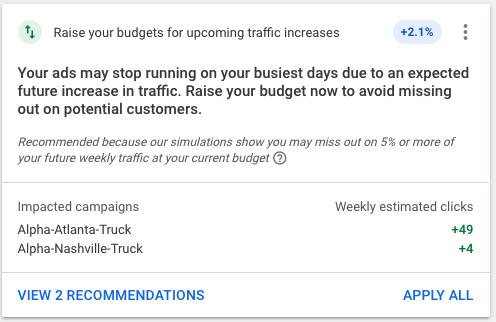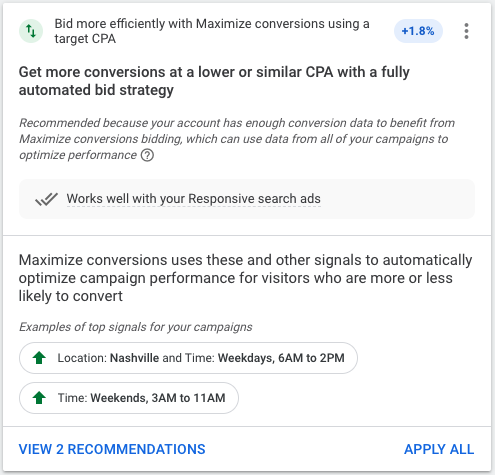In Product design in 2021, it’s becoming increasingly popular to “gamify” your environment to reward positive user behavior. While this may be a great way encourage certain types of activity inside of a software platform, today we ask… is it possible that this can be illegal?
Let’s find out.
In 2020, Google introduced “Optimization Score” as an indirect way of providing feedback to users to “help increase performance” of their advertising campaigns and efforts.
As an advertising campaign manager, one might say that our job roles related to managing campaigns are often at the crux of minimizing wasted ad budget spend, and verifying targeting accuracy.
These job responsibilities are now aggressively attacked and limitations imposed by Google’s Advertising platform under the guise of “better performance” relying on Artifical Intelligence technology.
the actual recommendations from this system have generally fallen to be 40% increase in spend related, or 40% more reliance on Google’s Ai targeting.
Lets outline a few recommendations here:


While readers who haven’t worked with Google Ads may not understand the tech lingo here, the summary of this is basically as follows:
- Spend more money with us
- Use less targeting and rely on our “proven systems” to handle targeting for you.
There is absolutely 0 accountability or oversite as to any of the claims from this system. It’s actually very peculiar because, working in marketing, we are familiar that certain types of claims for performance or success can not be made without imposing liability and risk for fraud of misleading claims.
In this case, Google uses it’s lack of transparency to provide data-based claims to promise performance, yet, that performance may not ever actually be yielded.
The end result being tricking users in spending more money with Google, and having no way to get their money back or in anyway verify if these claims are possibly true.
Is this sort of product design illegal?
While this may not explicitly be illegal, it certainly does seem to be well into the anti-trust and misleading claims territory. For less experienced advertisers, this can cause overspending and under performance.